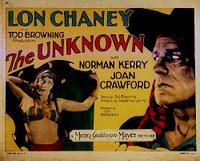I have been studying screenwriting for almost six years now, and am starting to think that my knowledge and love of film and storytelling would be better suited more to the business side of the industry. Rather than writing and directing, my interests are drifting more toward the jobs of creative and developmental executives. My questions for you: How does one become executive story editor of ICM? Aside from film-related areas of study, will an English degree suffice, or are backgrounds in business and law preferred? What should a resume of someone hoping to land an executive job entail?
Like most jobs in Hollywood, one usually starts at the bottom to work his way up. As the business of making movies seems to be shrinking, so are the opportunities for creative positions - which are very competitive. Many creative executives begin life as assistants (or even interns) at production companies, studios and agencies.
Agency experience looks good on a résumé and many prodcos look for it (some even insist on it). If a creative executive (CE) position opens up, word of mouth spreads through the industry. Jobs are often filled internally. However, if a suitable candidate doesn't materialize, the interview process begins (résumés vetted first). When the applicants are thinned out, the lobbying begins. This is a process where the candidate has the most influential people he knows (who hopefully know the prospective employer) make calls on his behalf.
On my side of the business, it behooves a talent agency to place one of its exiting employees in a CE position. It means a direct pipeline from the agency to the prodco. This is a very strategic process. Conversely, the prodco is not just looking for a clever story mind but also hopes to find a candidate with an impressive address book.
Having an English or law degree is meaningless in most cases; some key elements to a landing a creative position are previous experience in the business, an opinion about story, contacts and a gregarious manner. In spite of my exemplary traits and winning personality, I weaseled my way into ICM thanks to the help of a friend and timing.
Ultimately, landing a job in Hollywood isn't as hard as keeping it.
____________________________________________________
Consider two identical query letters, one naming the writer as a member of the Independent Writers Association of Southern California and the Alameda Writers Group, and the other not. Would you be more likely to read the script with the professional affiliations or are they unimportant unless they're extremely exclusive and/or prestigious?The only element of the query letter that will tantalize me is the logline. Although I wholly endorse writers' groups because they are a great way to meet with other scribes and industry personnel, exchange scripts and contacts, and commiserate, it doesn't mean the script is worth two-hours of my time. The same is true of a writer who includes his MFA in screenwriting from USC (let's say). Although I might be more likely to cut an MFA writer a bit more slack (he has shown some dedication to the craft), my job only allows time for soliciting scripts based on whether or not the concept intrigues me. ___________________________________________________ Have I got a question for you. I'm a 23-year-old chick who's starting grad school at Tisch for Playwriting this fall. While I'm super psyched, there's a big part of me that has always loved screenwriting. I've done it for a few years, teaching myself from books and whatnot, have taken a few classes (one at Tisch's summer sessions...) and have got positive feedback and placed in a national contest or two (but who hasn't, right?). My question is...I've got a script that I'd like to push around, but obviously I'm not going to be inundated with time. Do you have any advice for me? I've worked in some literary offices in the big city so I know how much of an uphill battle it is, especially being young and female, and alone.Being young, female and alone can only help you in this business.
I graduated from the same program you're entering. It was a very valuable experience for me, and one of the few smart decisions I've ever made. Although you probably won't appreciate my advice, I suggest you be patient.
A common flaw in the strategies of new writers is: Too much, too soon. Use the next two years to improve your craft, set-up a network, and take lots of screenwriting classes. Exit the university with several marketable scripts. This time will not come again. Marketing a script is almost full-time work and you'll have the rest of your life to devote to it. For now, your energies need to be focused on 721 Broadway.
Good luck to you and give my regards to Gary Garrison.
____________________________________________________
What does Hollywood really think of InkTip?It would be rather bold of me to speak for all of Hollywood, but I'll offer up my opinion.
For those who don't know, INKTIP is an online business that charges a fee for writers to post their screenplays in a safe environment where producers and executives in the market for material can shop using an organized search system.
Jerrol LeBaron is the President of INKTIP, and he is a very sincere individual who works very hard at marketing his service - not just to writers - but to producers and executives. (Only writers pay. The service is gratis for those in the industry looking for material.) He even publishes a colorful magazine that features loglines for easy perusal.
INKTIP boasts a lot of success stories. In the April 2006 periodical, INKTIP states that 13 projects were produced in the last 13 months. (The odds changed drastically sixty-days later when the magazine's cover boasted "Two films produced every month.") However, the majority of the production companies are relatively unknown and it seems unlikely that these projects get theatrical distribution. However, that doesn't always seem to be the case.
Here is a quote from its "Recent Successes" section: "
Haxan Films has finished production on the horror picture 'Altered,' which was penned by InkTip writer Jamie Nash from a story he created with 'The Blair Witch Project' co-creator and Haxan Films' Eduardo Sanchez. Sanchez discovered Nash on InkTip. Rogue Pictures, the genre arm of Universal speciality unit Focus Features, has picked up worldwide rights to 'Altered....' "
I think it's fair to say that INKTIP could be a way to help a writer break into the business, but it seems unlikely that it will help him pay off the mortgage, since, I suspect, many of these options are free or low dollar and salaries are deferred or negligible.
The biggest downside to INKTIP is the quality of projects it hocks - which is not a reflection of its business practices . Most of the featured loglines are badly written or pitch inane concepts.
I think that INKTIP has remained rather elusive to mainstream Hollywood. However, those outside of the system - who do make movies (even if we've never heard of them) could snatch up your script. Overall, I think it's the individuals who operate INKTIP that instill it with most of its credibility.
___________________________________________________
A producer recently looked over a novel that I have written and asked me if I have ever written a spec. I said no. He said go for it. So I did. OK here's the question: Do I use card stock covers on both sides? Title only on the title page? I got the brads down and the format of the page down, but the proper aspect of the "cover" has me confused.If you've just completed your first spec and the biggest challenge you're facing involves card stock, I think you'll be a great success.
There are no guidelines here. It is personal preference.
Most agencies and prodcos make their own copies of the original and bind them with their own protective covers. Regardless, if you'd like to adorn the script with card stock covers (to prevent the title page and/or back page from being torn off), no one will hold it against you. The title on the title page alone will suffice.
________________________________________________
I have an idea for a script to enter in the Disney Fellowship Program. I did this for my kids, what do you think of this story line I came up with? It's about Socks that come to life after a father makes them into hand puppets and uses them on a blue moon. In the end the Silk Princess gives up her life to save the house from robbers.SHREK began life as a bedtime story.
But then again so did LADY IN THE WATER.
As a logline, this is a little scattered. There is no connective tissue between the father's sock puppet and the Silk Princess. (Does the dad wear silk stockings?) Plus, I don't have a clue as to what the story's about. You've left out the entire mid-section (your second act).
I think you certainly have your heart in the right place. It's very sweet that you've written this story for your children (who might seek retribution as adults). If it's something you must commit to the screenplay format, then do it and see how you fare with Disney.
However, in my opinion, this could be the kind of story better off kept between father and child.
___________________________________________________
I'm wondering if there's any possibility you can accept a treatment for one of my works that can lead to getting me hired or the screenplay getting produced in some way. The story I'm talking about is unfinished, though I have written several screenplays in the past without really trying to get them out there; written them more for learning-purposes. But what I want to "pitch" or send a short treatment on is something I've been outlining during the last year. Almost everything is set up, every scene, character, even some of the dialogue, but since I'm done writing for fun I want this great idea on the market. I want to know if there's any serious interest. After all, there are so many great ideas out there, I want to choose my time carefully. So, to get to the point again, can you take and make anything out of a treatment? If there's any serious interest, I'm willing to write it in no-time.No interest from me.
I'm not a fan of treatments as a tool to sell a screenplay - not from an unestablished writer anyway.
Treatments are helpful to a writer while plotting out his story. Treatments are often a "step" in the studio development process. However, at that point, the writer has already been hired based on writing samples. The challenge with an unknown writer landing a job via a treatment is that it doesn't prove his ability to write dramatically. All of the story points can look more than effective in narrative form, but when the writer translates it into a dramatic format, many things can go awry (like exposition, dialogue and character development, to name a few).
In my opinion, a dramatist using a treatment to sell a script is tantamount to a songwriter tap dancing his ditty instead of singing it (presenting it in the true form in which it is meant to be expressed). If you believe it is a great idea and a good story, I suggest you write the script.
Now that your days of writing for fun are done, you must begin the next step on your journey to writing professionally: Work for free.
___________________________________________________
I truly appreciated the "A" List of questions to ask when a screenplay is finished. The most intriguing, to me, is the last: "Does it avoid conversation?" I'm not entirely sure what you mean by "conversation." Are you referring to pages of inane chatter, a la Kevin Smith, or pages of sparkling dialogue one finds from Billy Wilder or Aaron Sorkin?Yes, I'm referring to pages of inane chatter.
The function of dialogue is to forward the plot, reveal character and exposition - amongst other things. It is not designed to be purposeless - unless there is a purpose to it. Leave conversation for conversation sake to the auteurs. As a scribe writing a spec script to turn heads - it is not advised.
____________________________________________________
The A LIST is a great tool for the drama in a story but it doesn't delve into the thematic aspects of the story beyond: "Is the story about something? Is there a "theme?". I think you should consider adding a THEME category to your list. Here are a few suggestions:THEME
Does your theme have a structure?
ACT I Presentation of the Theme ACT II Argument of the theme,ACT III Conclusion of the theme)
Is there a relationship between your character's internal struggle and your theme?
Does your character's actions argue and communicate your theme?
Is your theme clearly connected to your plot points and climax?
Is there an image that communicates theme?
Is your theme articulated in dialogue?
I think this is a great addition to the list.
In the A LIST blog, I stated that the list included items that
I look for when reading scripts. To be frank, I don't consider the particulars of theme.
I only pay attention to theme in the most basic sense. It only seems to rumble around in my head if the script seems devoid of one. (I often ask myself, "What the fuck is this script about?")
In my experience, I have not seen script notes (from execs, let's say) that contemplate theme. It's often too personal and esoteric. I certainly think theme is important for the writer. It is the soul of his screenplay.
But Hollywood is souless - which explains the limited involvement of "theme" on my list.
___________________________________________________
I get the idea of the Halle concept. I love big movies. I know what makes me want to see a commercial movie. I get it. I come up with these great concepts (really, I do). Two of them are on your list. One of them I actually wrote the script. And that's the problem, the time between getting the idea and the time it takes to write the script. More time than not, I read on "Done Deal" that the idea was just sold. Now, I know this is an age-old problem and you just gotta deal with it. I get that too. My situation is that I have a great idea (forgive the lack of humility for a moment). I think the title role is something that actors will be clamoring for. It's based on existing material with a new angle. The few people I've told about it come back and tell me they can't stop thinking about it. So I wrote the script and it's good. It's really good. It's all there...but it's not perfect. Should I send out a good, but not perfect, script with a concept that's Halle quality or take a few months to re-write it and risk reading it was sold? I mean it's a great concept, I could tell you the title and you would get it. What do you think?Your question left out the "Halle" concept. I could have judged a bit better with more information and less hype.
I suspect that your definition of "good" varies greatly from my definition of "good." I have a fairly high set of standards, since I'm reading scripts from the town's very best writers. And so are most of the people to whom you'll send the script. So, you better be damn sure that your definition of "good" is as "good" as mine.
If you really are working with a "Halle" concept, you're off to a better start than most writers. However, often, by page ten, the "Halle" mask is removed to reveal a "Jocelyn."
It's like that commercial where guys on the beach are checking out this hot chick sunbathing face down and topless. When one of the horny guys tries to pick up on her, "she" rolls over only to reveal a skinny dude with long hair, Speedo, and a hairy chest.
Bait-and-switch is commonplace in Hollywood. Take a month to rewrite the script. (For a script this good, a month seems like plenty of time.) During the process, commence with marketing. By the time you've gotten any bites, you'll be finished with the rewrite. A week or two delay in sending out the script to those interested will not crush your chances.
Don't worry about other writers and their (similar) projects. You have no control over the competition.
Screenwriting is not an interactive sport. It's more like golf. You're competing against yourself.
At this stage in your career, you owe it to yourself to make the script the very best it can be. Because even your best may not be good enough.
____________________________________________________
Is there any hope for a writer who dislikes Halle movies -- i.e. finds almost any movie that can be pitched in a crisp logline to be fairly uninspiring, forgettable, and usually even downright awful? What if you've tried to write a couple Halle movies but find yourself drawn again and again back to Jocelyns because those are the types of movies that you love and therefore have the passion to write? Are you screwed? And what if you actually happen to write a brilliant Jocelyn? Will anyone give a shit? Wasn't "American Beauty" a Jocelyn? My understanding is that this script created a lot of buzz when it got shopped around.
Let's not confuse "Jocelyn" with "Mona." "Jocelyn" refers to an unattractive concept made worse by poor execution. A "Jocelyn" is bad all around.
A writer does not want to aspire to create a "Jocelyn," though most unwittingly do.
"Mona" refers to an unattractive concept that hides a great work beneath the surface.
Based on my silly illustrations, if you desire to write "Jocelyn," it would be difficult to get your career off the ground. AMERICAN BEAUTY is definitely not a "Jocelyn." It's more of a "Mona." (The concept is rather provocative and intriguing, however.)
Is there hope for a "Mona" writer? Of course. "Halle" isn't for everyone. But "Mona" is all about the quality of writing - which means the script has greater chances of failing; the odds of a new writer having a script as well-written as AMERICAN BEAUTY are slim to none. In my opinion, it's a lot easier to come up with a high concept and less-than-middling execution - like BRUCE ALMIGHTY - than it is to write a sophisticated and provoctative screenplay like AB.
But that shouldn't discourage you. However, a new writer has to work much harder to get a "Mona" project off the ground, because "Halle" has an easier time finding dance partners.
Although Alan Ball was introduced to features via AMERICAN BEAUTY, he was not a new kid on the block. He cut his teeth on more mainstream fare like TV's CYBIL and then segued into AB. (Most recently Paul Haggis made a similar metamorphosis. )
Alan Ball didn't have to peddle AB through a series of query letters. Many working writers who find the likes of "Mona" attractive have strong connections in the business, enabling them to bring their projects to fruition.
___________________________________________________
I've been developing a thriller spec script with a manager not affiliated with a major firm. Had him 'checked out' and he has a few legit clients, but (like myself) he's just getting starting. Up until recently, he's given constructive notes that have really moved the script forward. In our recent meeting, though, not only did he have very little positive to say, but (more importantly) was also very patronizing and distracted. As a gut check, I had an agent and another manager review the script and they were very enthusiastic about it. What's the right way to give this manager his proper due for helping developing the script (which he did), but continue to work on the script without him for the spec market?That depends on the contract you might have signed. Some managers can lock up a screenplay for a period of time. However, if you didn't sign a contract, you owe him nothing but a "thank you." (Even if you did sign a contract, a "thank you" might be sufficient.)
Being a manager is similar to being a realtor. A realtor can invest months of time and money in trying to sell a house (or find one). However, if the seller decides to pull the house off the market or the buyer chooses to give up his search, the realtor is out of luck and a commission. That's the risk of the business.
Any development notes the manager might have given to you were provided gratis. If you're not happy with his performance, take yourself and script elsewhere.
____________________________________________________
What strategy would you advise, if you were a newbie writer, with no rep nor contacts, and wanted to make a sale within the next year? What would be the building blocks - and how would we go about building them - to get to that industry sale?
This is a facsimile of the most popular question asked. And, of course, there is no answer.
The two most important things you must do is 1) Write and 2) Network.
And you should be doing them simultaneously.
Assuming you have a viable project (a "Halle," let's say), it is important to have a network of connected people who can read the script. This business operates on relationships. A day doesn't pass at work without an e-mail going out asking, "Does anyone here have a relationship with...?" The more connected you are, the better your situation.
Writers who live out of town are at a disadvantage when it comes to networking, but there are industry events (with limited access), telephones and e-mail. I often get letters from writers - total strangers - who visit town for various reasons and ask to meet with me for a short time. Each writer must devise his own plan of networking with people in the industry.
Your goal should be to eventually bypass the process of the query letter and simply call your network and distribute your screenplay. And, hopefully, half of those people will pass it on to others they know. Even writers with strong roots in the community struggle to earn a paycheck, so being a complete stranger to the town only makes the journey longer and more arduous.
Setting time limits (sell a script within the year) might work for some, but, realistically, Hollywood has its own internal clock which ticks like no other time zone on earth. You might be better off setting goals within your control.
For instance, set the goal to complete two polished screenplays within the year, and/or enter two or three important contests/fellowships, and/or set out to make contact with four new industry people a month - which will offer an expansive network by the year's end. (Also, remain committed to staying in contact with those you meet.)
Work hard at both writing and networking. And be patient. The journey through Hollywood is neither a sprint nor a marathon - it's a death march.
_________________________________________________
Let’s not forget those writers who recently passed away. Their contributions to the creative community and our lives are greatly appreciated.
Ed Benedict, 94
Naguib Mahfouz, 94
Sig Shore, 87
Gerald Green, 84
Joseph Stefano, 84
Ralph Schoenstein, 73
Robert K. Hoffman, 59
Send questions and comments to
theinsidepitch@sbcglobal.netAny mail received to this account - including query letters and solicitations from Nigerian barristers - may be used for publication on this blog.
 Theatrical films produced prior to 1951 were made on nitrate stock – a highly volatile substance prone to fire and decay. Almost 90% of all silent films have been lost. Occasionally, a rare print turns up somewhere - like in an attic (usually far from Hollywood). In the case of Carl Dreyer’s THE PASSION OF JOAN OF ARC, a print was found in the closet of a mental institution.
Theatrical films produced prior to 1951 were made on nitrate stock – a highly volatile substance prone to fire and decay. Almost 90% of all silent films have been lost. Occasionally, a rare print turns up somewhere - like in an attic (usually far from Hollywood). In the case of Carl Dreyer’s THE PASSION OF JOAN OF ARC, a print was found in the closet of a mental institution.  The notion of “unity” often eludes writers, and their stories feel oddly disconnected from themselves.
The notion of “unity” often eludes writers, and their stories feel oddly disconnected from themselves. 


